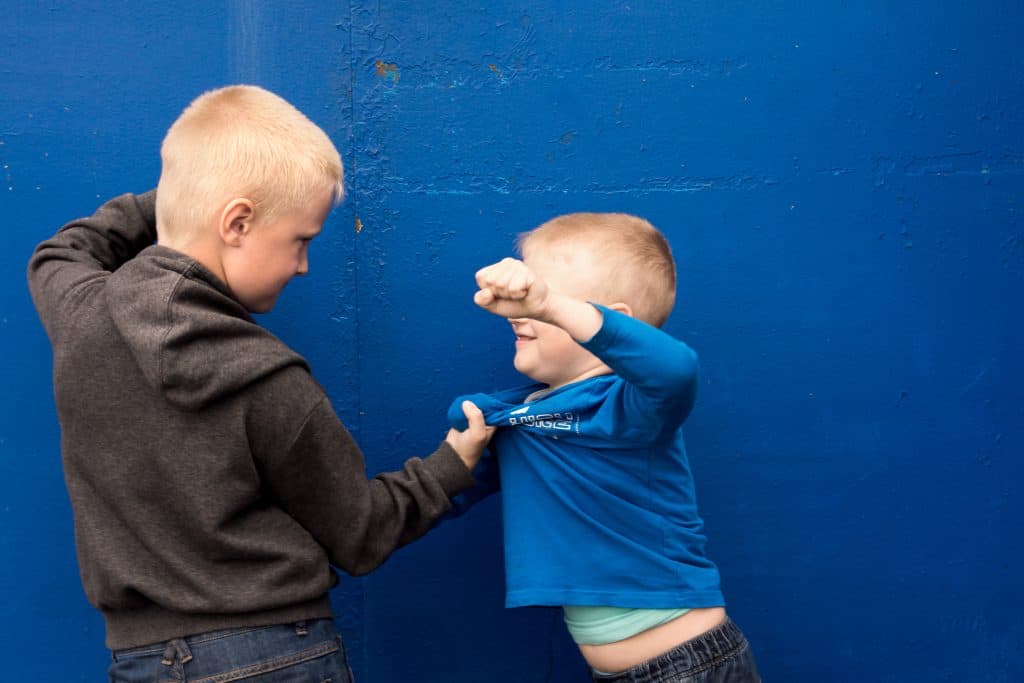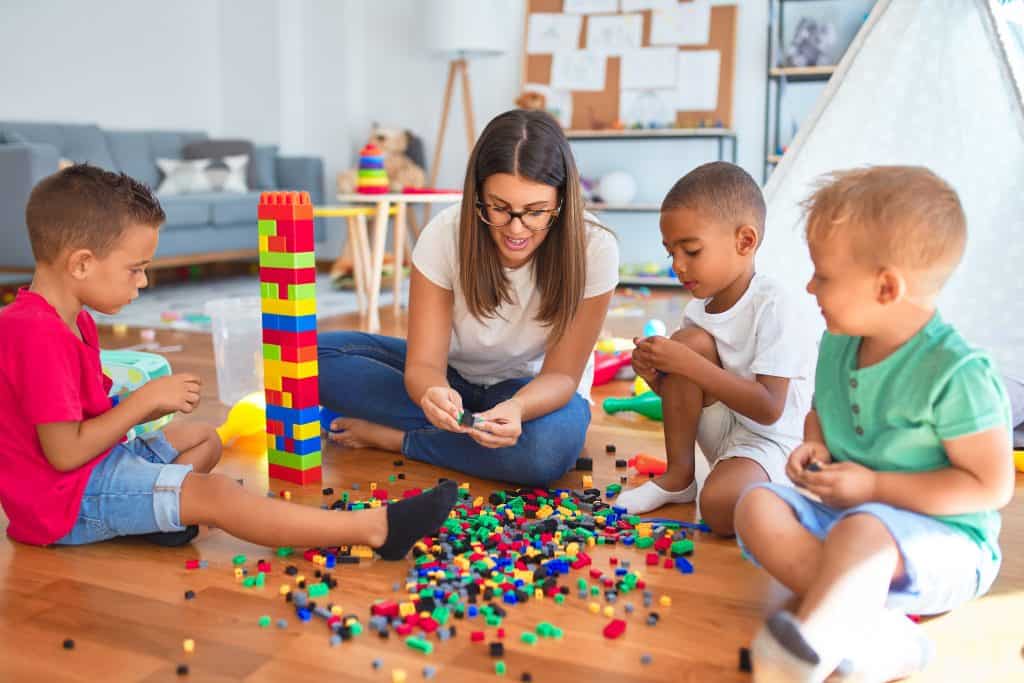Honestly, have you ever been in a situation where you feel ashamed of your children?
You know when you see them behaving as if you’d never taught them politeness or good manners?
Well, don’t worry! You’re not the only one. Whatever you do, sooner or later your children are going to test the limits. They’ll see how far they can go before you react.
And when they do, you’ll notice behaviors that seem intolerable, but that you can’t control. This is because your children are gradually beginning to think for themselves, and they want to experiment.
As a result, rudeness becomes an almost daily occurrence. When you go out, you’ll see the looks of other parents judging you.
“But these kids lack education.”
“She lets them do anything and everything, it’s unacceptable!”
Your children’s behavior is driving you crazy! Yet you’ve spent a lot of time teaching them good manners.
You’ve spent a lot of time making them understand the difference between right and wrong, good and bad.

Despite all this, they just don’t seem to get it. They don’t seem to understand why it’s important to behave well.
In fact, your children lack awareness of others and of their own needs.
And this lapse in your upbringing makes life difficult for you. And sometimes you find yourself in uncomfortable situations. It’s as if other parents are avoiding you.
But all this can be solved!
All you have to do is make an effort to correct the bad habits your children have picked up. This doesn’t mean telling them how to behave.
You need to check, on a daily basis, whether your children have understood these lessons in practice. And you must not negotiate with them on these points.
The key word is: consistency!
But be careful! I’m not throwing the first stone here. We’ve all been in a situation where we’ve asked ourselves: “Where did I go wrong?
And that’s okay. It’s never too late to catch up. And the younger your children are, the easier it’s going to be.
So here are the seven behaviors you need to put a stop to as soon as possible:
1. “When you call someone or ring the intercom, introduce yourself and say hello.”

This is the basis of politeness. I know that today with modern telephones, we already know who’s on the other end, but that shouldn’t be an obstacle to politeness.
“Hello Madam, my name is Loïc. Could I speak to Simon?”
It’s not complicated, is it? First you say hello, then you introduce yourself and finally you get to the point of your call. The same applies when you visit a friend.
If their parents are home, you say “hello” and introduce yourself. Unless you know them well, in which case you simply say “hello”.
Of course, when you finish the conversation or leave, you say “thank you” and “good-bye”. Politeness never goes out of fashion, and if you build a good relationship with your friends’ parents, everything will be easier for you.
2. “When someone is talking, don’t interrupt”.

Adult or child, everyone deserves to be listened to. It takes patience to listen to what others have to say. It’s not just politeness.
It’s also proof that you care about the other person and that what they have to say is important to you.
It’s impolite to interrupt a conversation. Just because you’ve remembered something in the middle of a discussion doesn’t mean you have to say it right away.
Wait for an appropriate moment to say what you have to say. When the conversation is over, or when the other party is taking a break.
If the situation is urgent and you need to say what you have to say right away, start with “sorry to interrupt” and add what you have to say.
The same applies to a telephone conversation. If I’m on the phone, or if someone else is on the phone, wait until the conversation is over to say what you have to say. Unless it’s really urgent.
3. “You don’t have the right to demand things, ask politely”

When you ask for things calmly and politely, people listen.
If you want someone to help you or give you something, simply say “please” or “can you…”.
This lesson is part of the good manners your child can learn from an early age. So if he asks you to do something, without saying “please”, don’t help him.
Refuse to act until he asks politely. At first, you’ll have to remind him why you won’t help him. Over time, he’ll understand on his own why you’re not doing anything, and he’ll automatically add “please”.
4. “Don’t eat in a closed public place if it’s not a restaurant”.

Only babies have the right (and obligation) to eat at any time and in any place. They don’t have much choice, and neither do their parents.
Children aged three and over can be patient and wait until they get home or arrive at the restaurant to eat.
On the bus, in the theater or at the cinema, the noise of chewing and the smell of the food you’re eating will be very annoying for the people who are obliged to stay close to you.
These people are there to be transported to work or home or to watch a movie, not to be bombarded with sound and smell effects.
5. “If you’re not asked what you think of the food, don’t comment”

“Gross” or “I don’t like it” are not acceptable comments when talking about food.
When you criticize food, you’re insulting the person who prepared your meal. What’s more, you’re showing that you pay far too much attention to your own opinion.
You’re subconsciously saying that you think others need (want) to hear your opinion on potatoes or asparagus.
As a courtesy, taste the dish, even if you don’t like it, and try to eat it. And if you really can’t eat it, apologize and say you’re sorry you can’t finish your plate.
6. “Don’t complain or seek pity from others”

I’m not saying your children should hide their emotions or their suffering. Absolutely not! I’m simply saying that you need to distinguish between two things.
Which situation is critical and which is not?
If you have a headache, a fall or are angry because someone stole your toy, don’t make a big deal out of it.
You’re either going to worry us for nothing or stress out your friends, or you’re going to bore people with your reaction. Do you know the story of the boy who cried wolf?
Now’s a great time to read him this fable, or to tell him the moral if he’s too little.
It’s not acceptable to shout about everything and anything, or to try to be the center of attention at all costs. You’ll spoil everyone’s mood, and that’s really rude.
7. “Don’t push others”

The rule of politeness, whether on a bus, at home, in the store or at school, whoever gets out has priority.
When you want to get on the bus or in a store, you must let those who are getting off go. You mustn’t run or push others to go first.
And you shouldn’t run to your seat either. If you’re too short to stand, someone will get up to give you a seat.
Or I’ll ask someone to make room for you.
But if you’re tall enough, it’s up to you to make room for people who are older than you.

